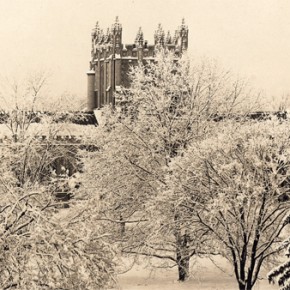If you’re a denizen of the library’s after-hours study space and you don’t swipe your ID card before exiting through the after-hours entrance, an alarm will ring – and ring – and ring, until someone (an exasperated fellow student, or even a security guard) comes by to silence it with a swipe of his/her card. Despite copious signage, the alarm is set off nearly every night the after-hours study space is open. This is annoying and disruptive to students studying in the after-hours space and working at the Reserve and Technology Helpdesk, and it’s a burden on security as well. So now the library’s trying a new strategy. Starting the first day of classes (1/23/13), a motion sensor with a built-in audio “reminder” will be operational from midnight – 8:00am Sunday-Thursday (with additional hours added during study and exam weeks). Anyone within 40 feet of the door will prompt the device to broadcast the following message:
Please remember to swipe your ID before you exit the building.
The device will repeat the message until the person who set it off swipes out of the building, or until s/he is out of range of the motion detector. How far is 40 feet, you ask? The library will put up discreet signs to mark the boundary.
Listen to a preview of the message:





